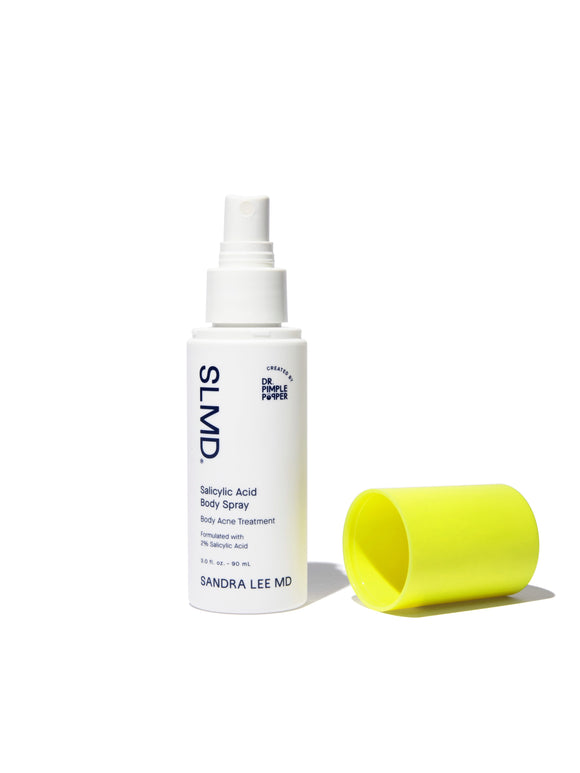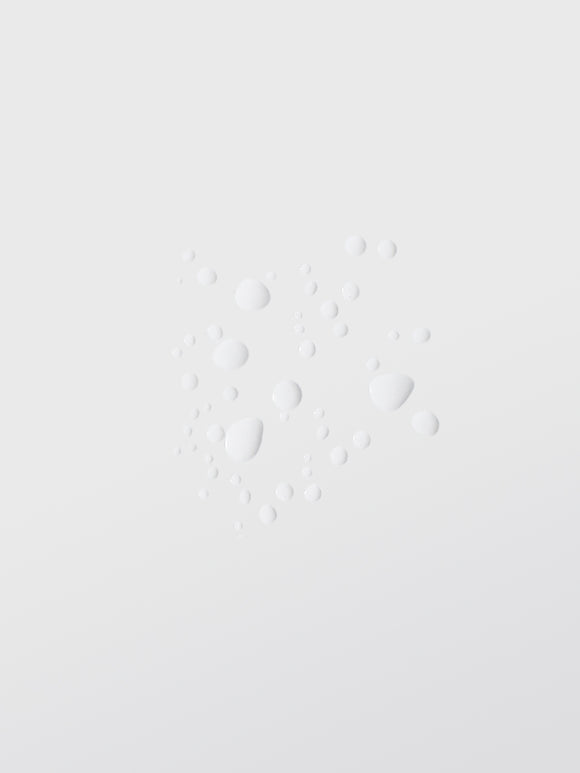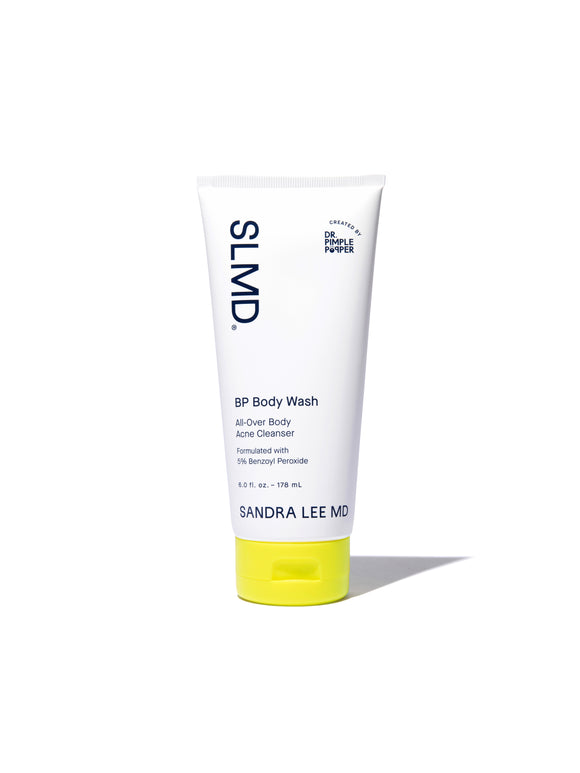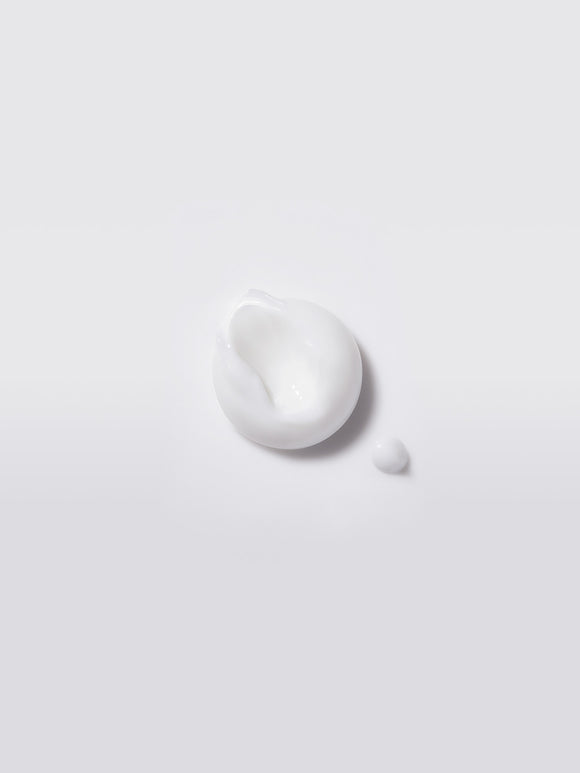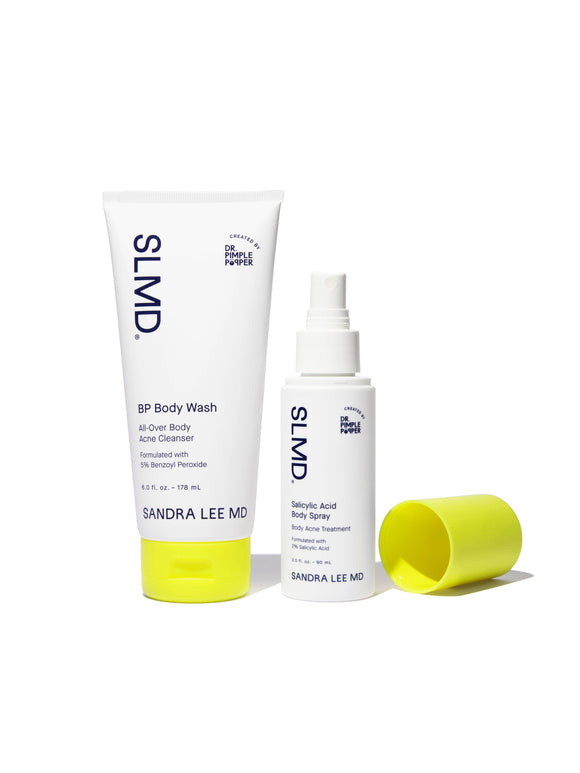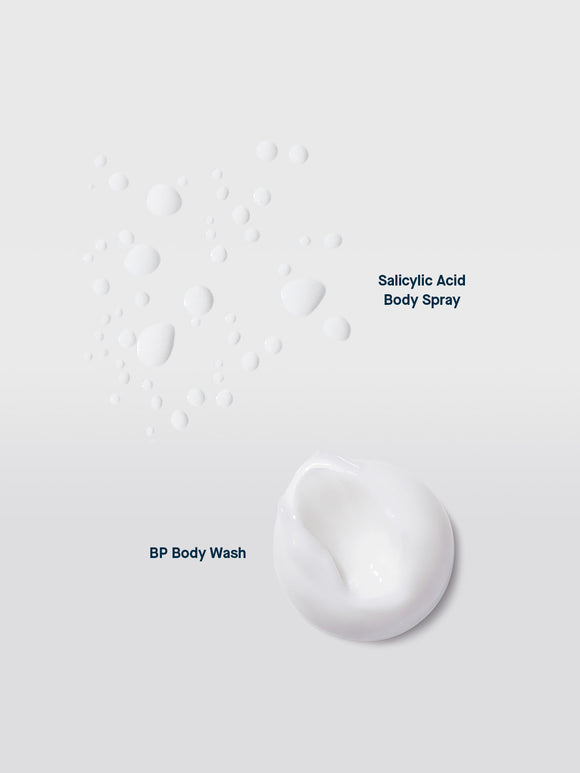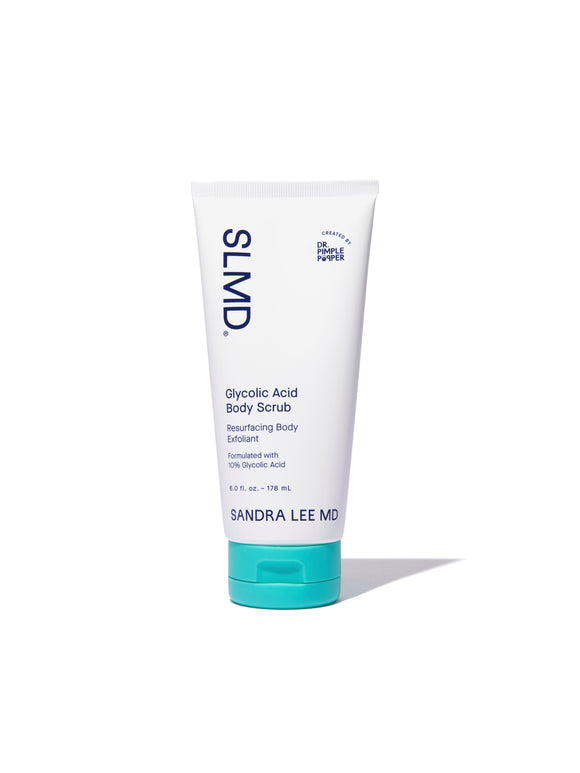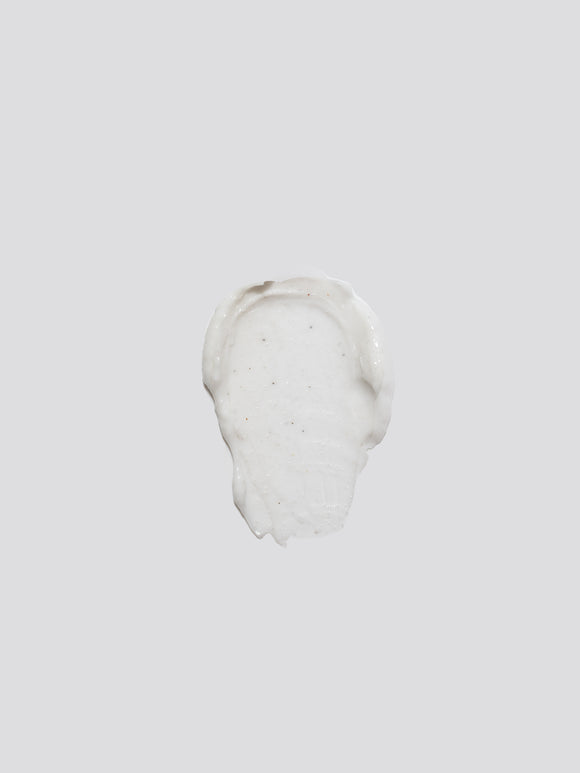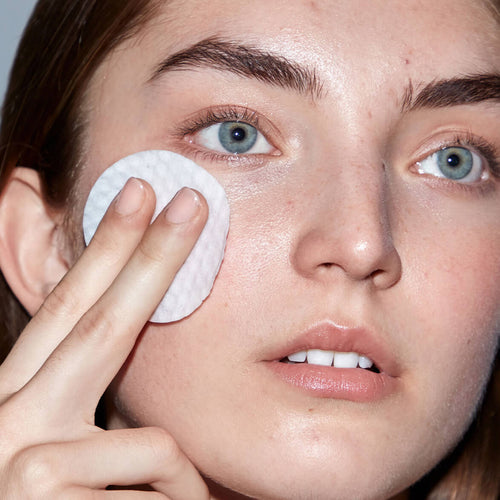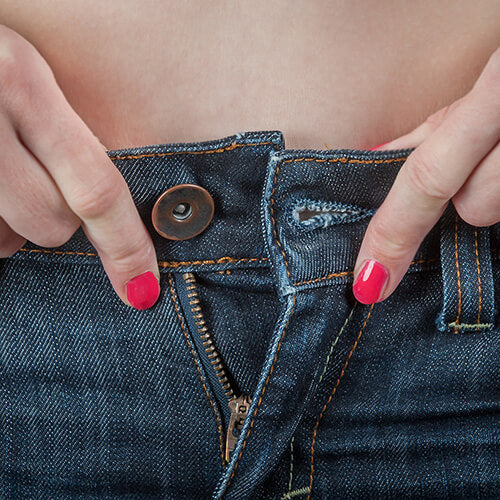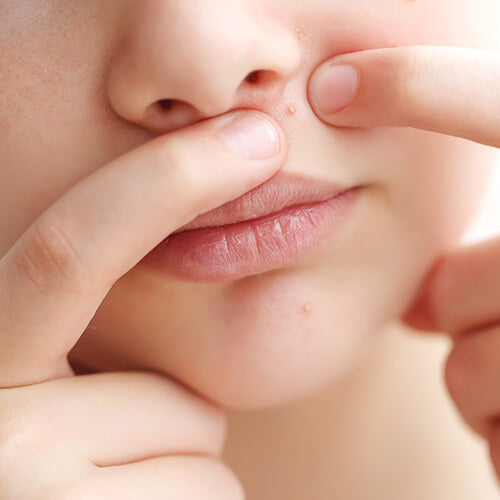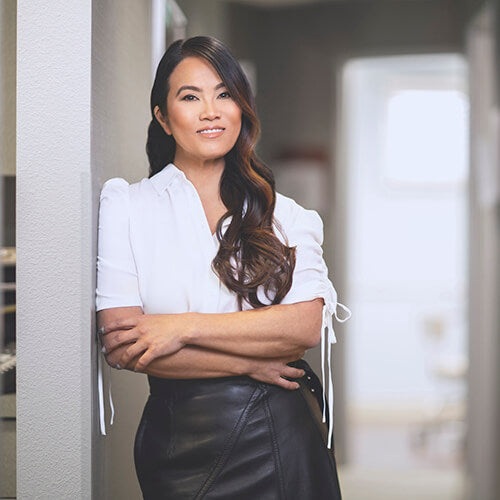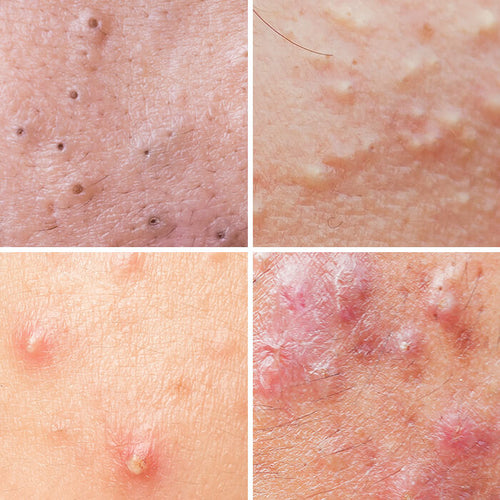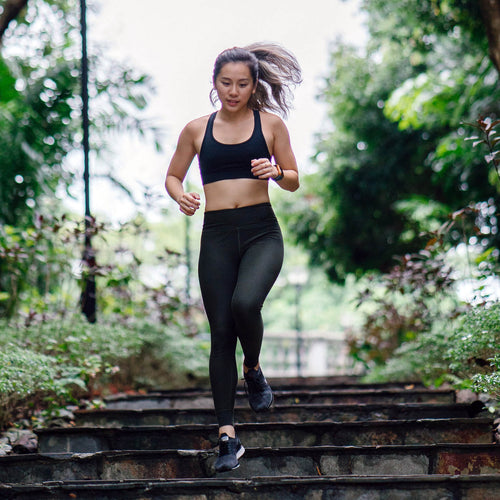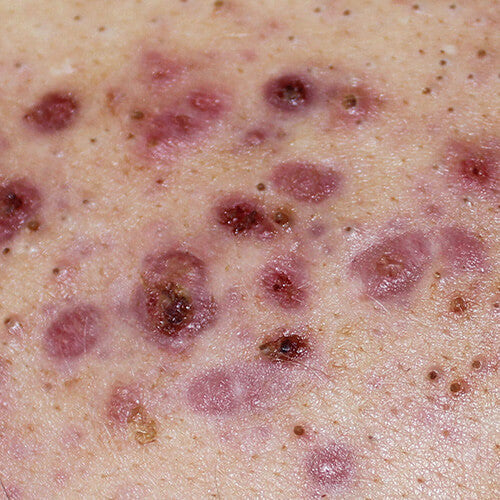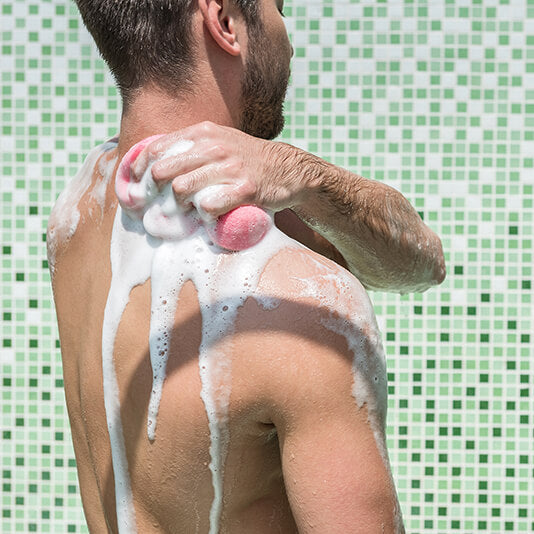
Exfoliating for Body Acne: What Works and What to Avoid
Dr. Pimple Popper’s tips for clearer, smoother body skin — without the irritation.
Published:
3 minute read
When pimples appear on areas like the neck, chest, and back, it’s natural to reach for acne-fighting products, and exfoliating is often top of mind. Exfoliating can help manage body acne by removing dead skin cells and clearing clogged pores. But overdoing it or using the wrong type can irritate the skin, making acne worse. To clear things up, we asked board-certified dermatologist Dr. Sandra Lee (aka Dr. Pimple Popper) for her expert advice.
Article Quick Links
How exfoliating affects body acne
Exfoliating removes the outer layer of dead skin cells, which can help prevent clogged pores, smooth skin, and boost the effectiveness of other acne treatments. However, it’s essential to use the right type of exfoliant, especially for acne-prone skin, to avoid irritation. There are two main categories of exfoliants:
- Physical exfoliants: These exfoliants contain granules or rough surfaces that physically scrub away dead skin, like sugar or loofah. Choose products with ultra-fine or self-dissolving granules, such as volcanic ash or jojoba beads, to gently exfoliate without irritating acne-prone skin.
- Chemical exfoliants: These use ingredients such as alpha hydroxy acids (AHAs) and beta hydroxy acids (BHAs) to dissolve dead skin cells without manual scrubbing. Common examples include glycolic acid (AHA), lactic acid (AHA), and salicylic acid (BHA).
Dr. Pimple Popper's Body Acne Picks
Best exfoliants for non-inflammatory and inflammatory body acne
The type of acne you’re dealing with plays an important role in selecting the best exfoliant. Here’s a breakdown:
Non-inflammatory acne (blackheads and whiteheads)
- Physical exfoliants: Gentle, fine-grain physical exfoliants can help remove surface buildup without risking irritation, making them suitable for blackheads and whiteheads.
- Jojoba beads: Smooth, dissolve easily, and are biodegradable, reducing risk of irritation.
- Volcanic ash: Offers mild polishing to remove dead cells gently without abrasion.
- Chemical exfoliants: Both AHAs and BHAs are effective, as they target different types of buildup:
- Glycolic acid (AHA): Removes dead skin cells and brightens surface texture.
- Salicylic acid (BHA): Penetrates into pores to reduce oil and prevent clogs.
Inflammatory acne (papules, pustules, nodules and cysts)
- Beta hydroxy acids (BHAs): Salicylic acid is ideal here, as it penetrates deeply into pores, reducing oil buildup and calming inflammation.
- Salicylic acid: Targets oil within pores to alleviate congestion and reduce inflammation.
- Complementary ingredients: For inflamed acne, antibacterial ingredients are beneficial.
- Benzoyl peroxide: Reduces bacterial growth and soothes inflammation, making it an ideal complement to salicylic acid for managing inflammatory acne.
Try: SLMD Glycolic Acid Body Scrub, Salicylic Acid Body Spray, BP Body Wash
Can over-exfoliating make body acne worse?
Exfoliating can be beneficial for managing body acne, but over-exfoliating or using the wrong type can actually make acne worse. Exfoliating too often may compromise the skin barrier, leading to redness, dryness, and more breakouts. Physical scrubs can be particularly harsh if applied with too much pressure, while overuse of chemical exfoliants may cause irritation, especially in acne-prone areas.
As Dr. Lee always says, Listen to your skin. Start slowly with any exfoliant, adjusting frequency based on your skin’s response. Follow label instructions, exfoliating just frequently enough to keep body acne in check without causing irritation. Signs of over-exfoliation—like redness, stinging, peeling, or unexpected breakouts—are cues to cut back and allow your skin to recover.
By following a balanced routine and observing how your skin reacts, you can enjoy the benefits of exfoliation without risking overuse.
Dr. Pimple Popper answers your body acne FAQ
Q: Can exfoliating help reduce body acne scars?
A: Exfoliating can help improve the appearance of post-inflammatory hyperpigmentation (PIH) by increasing cell turnover, which fades discoloration over time. Chemical exfoliants like glycolic and salicylic acid are especially effective for gently resurfacing the skin and evening out tone. However, exfoliation has limited effects on true scars (like indentations or raised areas) from acne. For significant scarring, professional treatments may be more effective.
Q: Is it better to exfoliate before or after a workout to prevent body acne?
A: Exfoliating after a workout is generally more effective, as it removes sweat, oil, and any impurities left on the skin. Using a gentle exfoliating body wash and an acne spray post-exercise can help keep pores clear and prevent acne from forming due to sweat buildup.
Q: What type of exfoliant should I use for acne-prone areas like the back and chest?
A: For acne-prone areas, especially on the back and chest, chemical exfoliants like salicylic acid are ideal. Salicylic acid penetrates pores, helping to reduce oil and prevent breakouts without the abrasion that physical exfoliants can cause.

Dr. Lee's Last Word
Consistent exfoliation can be very effective for managing body acne. I recommend chemical exfoliants like salicylic acid, which clears pores without irritating, and pairing with benzoyl peroxide when needed to target bacteria.



